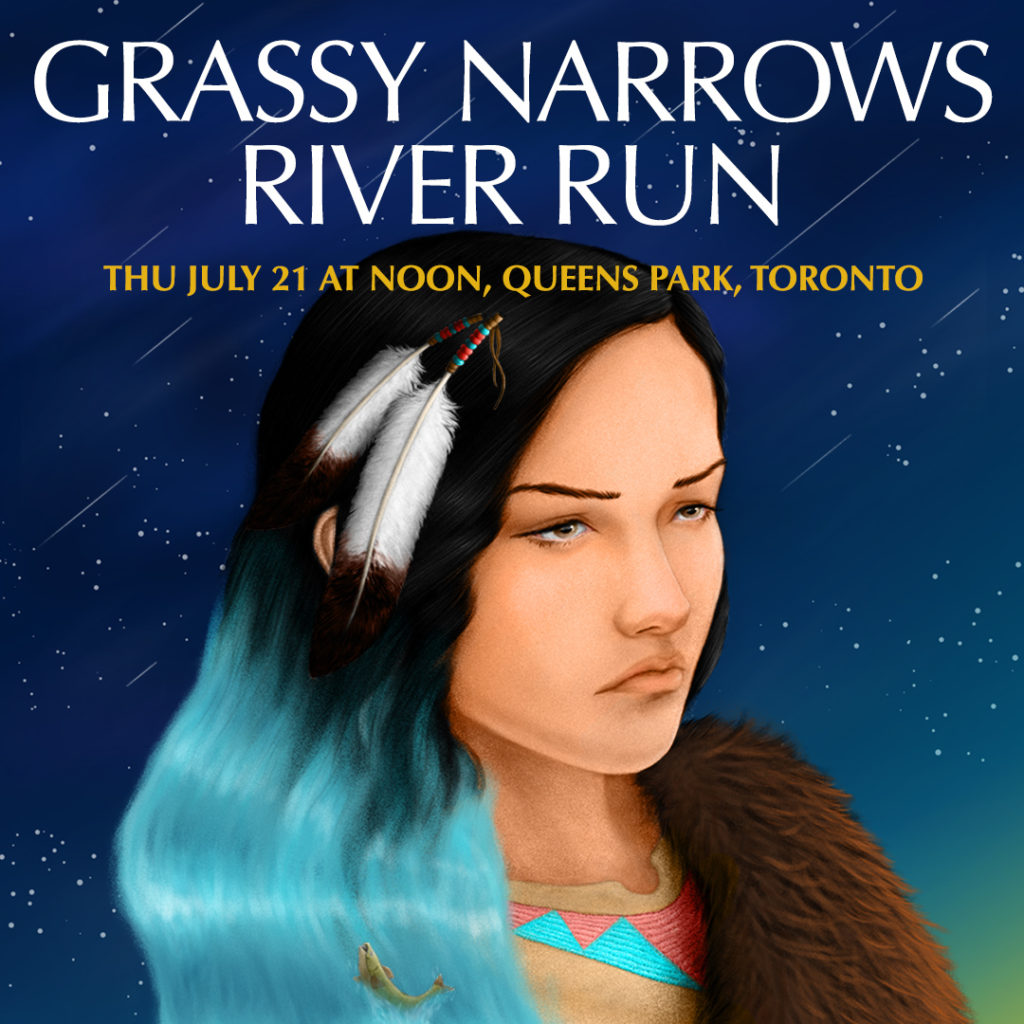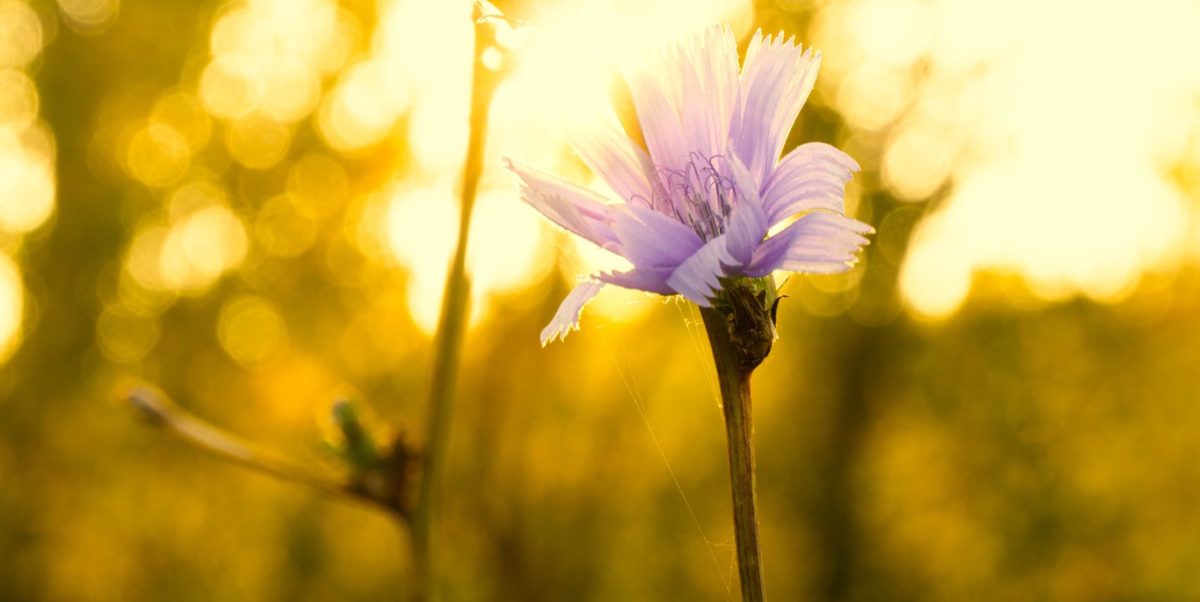This week, community members and leaders from Grassy Narrows First Nation are making the multi-day trip to Toronto to demand real changes from the Ontario and Canadian governments. At a time when politicians entertain the idea of reconciliation, we need to be supporting communities like Grassy Narrows who are very clear about what real reconciliation should look like.
Grassy Narrows, an Anishinaabe community in Northern Ontario, has a history of coerced displacement, residential schools, industrial-scale mercury waste dumping, and clear-cut logging. In the past few years, mining companies have also been eyeing Grassy Narrows’ territory, putting increasing threats on their territory and way of life.
In spite of all of this, the people of Grassy Narrows have been leaders in the movement for Indigenous sovereignty and environmental justice, and have continued to advocate for their rights and make huge gains. On Thursday, July 21 at noon at Queen’s Park, Grassy Narrows and its supporters are calling on us to join them at the 2022 River Run, a family-friendly march to make some clear demands.

The people of Grassy Narrows have three main demands:
• Compensate everyone fairly for the mercury crisis
• Respect the Grassy Narrows Indigenous Protected Area, requiring an end to all plans for logging and mining
• Support Grassy Narrows in restoring their way of life from the damage caused by mercury waste dumping
Let’s dive deeper into these demands.
Compensation for the mercury crisis
In 1962, with the approval of the Ontario government, a pulp and paper mill began dumping mercury waste into the English-Wabigoon River system, affecting the water, fish, and nearby ecosystem. This had very clear and devastating impacts on communities living downstream, including Grassy Narrows. Generations later, the community is still dealing with the impacts of mercury poisoning which include neurological problems, learning disabilities, early death, and impacts on culture and livelihoods.
After years of advocacy and mobilizing, Grassy Narrows and its supporters were able to force the government to commit to clean up the English and Wabigoon Rivers, comprehensively reform the Mercury Disability Board, and set aside $90 million to build a Mercury Care Home and Treatment Center in Grassy Narrows. While these are huge victories, they fall far short of the government’s responsibilities for the damage caused.
While mercury has had severe health impacts, it has also had impacts on the land, cultural practices, livelihood, and ways of life. Before the mercury contamination, Grassy Narrows had a vibrant culture, near full employment, and high level of independence. Mercury destroyed the fishing industry and economy, as the fish was no longer safe enough to consume or sell. It increased mercury concentrations in wild rice, the harvesting of which has and continues to be a cultural practice. Overnight, unemployment, poverty, food insecurity, and associated social problems became pervasive. Additionally, when clear-cut logging led to erosion of soils into the rivers, we saw even more mercury introduced into the river systems, further exacerbating the mercury crisis. The connection between logging and increasing freshwater fish-mercury levels is being increasingly proven in numerous communities where clear-cut logging is prevalent.
With demands to compensate everyone fairly, we need to see that the full health, cultural, and economic impacts of mercury are considered. To this day, only 14 per cent of Grassy Narrows members receive compensation for the impacts of the ongoing mercury crisis. Any person who has been poisoned in Canada would expect quick and fair compensation. This compensation would help Grassy Narrows people rebuild their lives and help the community regain autonomy. Together, we need to demand full compensation for everyone!
Respect the Grassy Narrows Indigenous Protected Area, requiring an end to all plans for logging and mining
Grassy Narrows has declared their land an Indigenous Protected Area, declaring that their traditional territory is under their governance. They have enshrined this declaration into Grassy Narrows Law and asserted that they are using their right to say “No.” The reality is that this right should already be protected under the United Nations Declaration on the Rights of Indigenous People; however, even with two different laws that protect Grassy Narrows’ land rights (Grassy Narrows’ Law and international law), the Province has been involved in plans for both mining and logging without the community’s consent.
Early last year, Grassy Narrows was informed about a mining permit that had been granted on their territory. After public pressure, the company withdrew its permit. While this was a big success, further investigation revealed that almost 4,000 mining claims and numerous other permits were granted in their territory without even consulting the First Nation, and certainly without their consent. Since November 2021, the community has continued their determination to see all of these claims and permits withdrawn while also trying to, once again, protect their territory from logging.
Grassy Narrows is located in the Boreal Forest, which is one of the largest carbon sinks in the world and is home to numerous animals who specifically rely on this ecosystem. When the community’s attempts to reign in the logging were ignored, they set up one of the longest-standing Indigenous blockades in Canadian history, kicking one the world’s largest newsprint companies off the territory and succeeding in stopping all logging for fourteen years on their land. Now Ontario is proposing to open up part of Grassy Narrows territory to unwanted clear-cut logging again, but this is being met with a continued commitment by Grassy Narrows’ and their supporters to make sure that the territory remains protected and sovereign.
Support Grassy Narrows in restoring their way of life from the damage caused by mercury waste dumping
“They stole our way of life from our community,” said Chrissy Isaac, community member, grandmother, and artist.
At a time of reconciliation, it is increasingly clear that Indigenous-settler relations need to change. That means there needs to be action from people in power to change those relationships by taking action and fixing past wrongs. Both the provincial and federal governments need to be held accountable for allowing mercury waste dumping to take place and for allowing the ongoing crisis to persist for so long. At a virtual rally held earlier this year, Isaacs asked “why did it take Walkerton, Ontario not that long to get clean water? Why is it taking us many many years and generations to have that?”
Decades of inaction showed that it is disappointingly clear that the people of Grassy Narrows could not wait for Ontario politicians. They took action themselves. By mobilizing and advocating for decades, they were able to secure $90 million for a Mercury Care Home and treatment center, making numerous strides towards mercury justice. But until there is full mercury justice for Grassy Narrows and their wellbeing, and their way of life is fully restored, we all have a responsibility and opportunity to join them.
Why we should all join the River Run!
Past River Runs have been pivotal in seeing Grassy Narrows’ demands met. Mining companies and logging companies did not willfully leave the community’s territory. Funding for the Mercury Care Home was not just a benevolent offering from the Canadian government. These were all the results of Grassy Narrows’ powerful leadership, mobilizing, and strategizing towards undoing past wrongs. These were all successes in the face of ongoing colonization and against great odds.
The reality is that no one should need to “demand” things like water, the right to continue practicing their culture, and the health and care they deserve; however, in Canada, communities like Grassy Narrows are doing just that. When Grassy Narrows fights and wins against powerful governments and corporations, they are showing all of us what it takes to challenge oppression and build a better life for ourselves and everyone. That is why we all need to join Grassy Narrows at the 2022 River Run. Join Grassy Narrows at Queen’s Park this Thursday to stand with them and tell the government that we all demand mercury justice, compensation for all, and freedom for Grassy Narrows.
If you are not able to join us in Toronto, please share information about the River Run with your networks, and make a donation to support Grassy Narrows community members’ travel. You can also watch the event on livestream here.



